Yijue Wang
TrustLLM: Trustworthiness in Large Language Models
Jan 25, 2024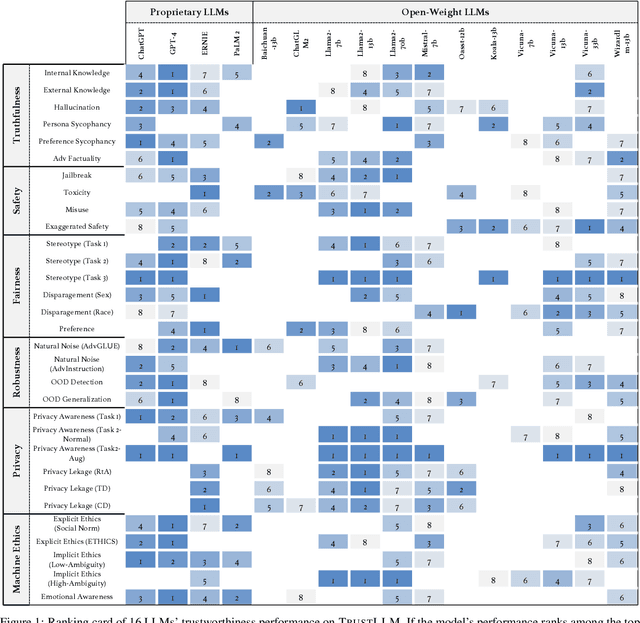
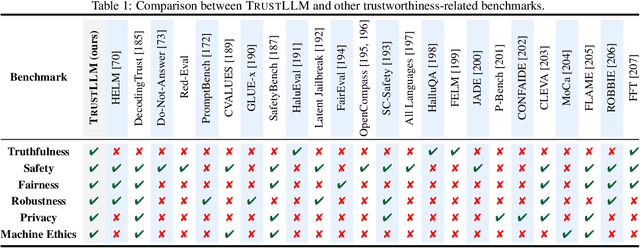
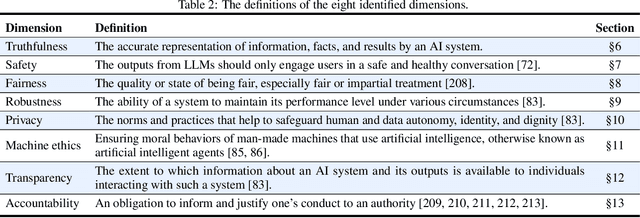
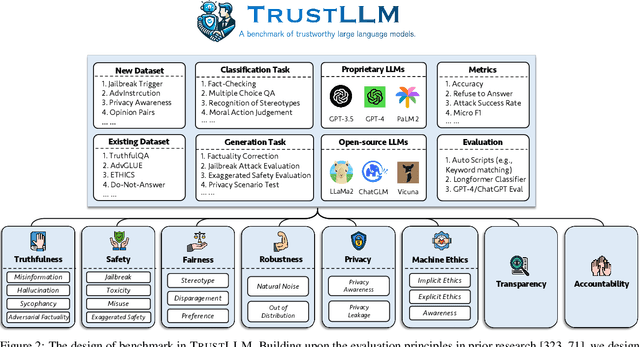
Abstract:Large language models (LLMs), exemplified by ChatGPT, have gained considerable attention for their excellent natural language processing capabilities. Nonetheless, these LLMs present many challenges, particularly in the realm of trustworthiness. Therefore, ensuring the trustworthiness of LLMs emerges as an important topic. This paper introduces TrustLLM, a comprehensive study of trustworthiness in LLMs, including principles for different dimensions of trustworthiness, established benchmark, evaluation, and analysis of trustworthiness for mainstream LLMs, and discussion of open challenges and future directions. Specifically, we first propose a set of principles for trustworthy LLMs that span eight different dimensions. Based on these principles, we further establish a benchmark across six dimensions including truthfulness, safety, fairness, robustness, privacy, and machine ethics. We then present a study evaluating 16 mainstream LLMs in TrustLLM, consisting of over 30 datasets. Our findings firstly show that in general trustworthiness and utility (i.e., functional effectiveness) are positively related. Secondly, our observations reveal that proprietary LLMs generally outperform most open-source counterparts in terms of trustworthiness, raising concerns about the potential risks of widely accessible open-source LLMs. However, a few open-source LLMs come very close to proprietary ones. Thirdly, it is important to note that some LLMs may be overly calibrated towards exhibiting trustworthiness, to the extent that they compromise their utility by mistakenly treating benign prompts as harmful and consequently not responding. Finally, we emphasize the importance of ensuring transparency not only in the models themselves but also in the technologies that underpin trustworthiness. Knowing the specific trustworthy technologies that have been employed is crucial for analyzing their effectiveness.
A Secure and Efficient Federated Learning Framework for NLP
Jan 28, 2022

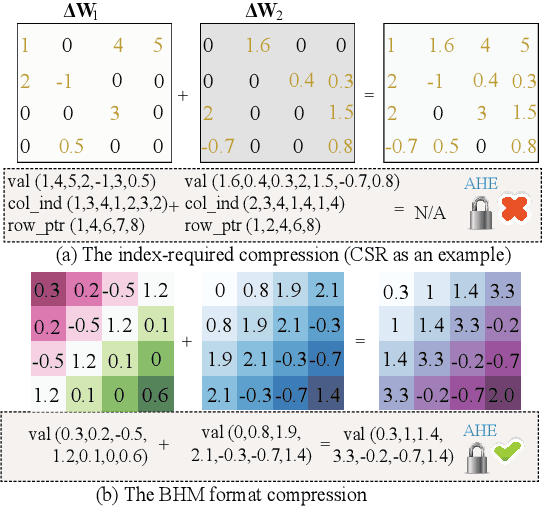
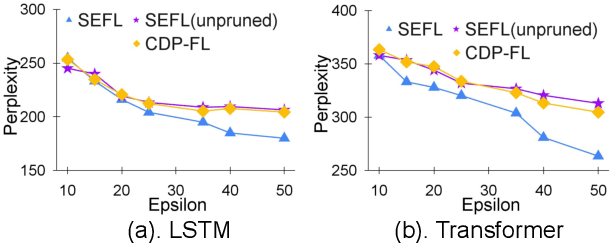
Abstract:In this work, we consider the problem of designing secure and efficient federated learning (FL) frameworks. Existing solutions either involve a trusted aggregator or require heavyweight cryptographic primitives, which degrades performance significantly. Moreover, many existing secure FL designs work only under the restrictive assumption that none of the clients can be dropped out from the training protocol. To tackle these problems, we propose SEFL, a secure and efficient FL framework that (1) eliminates the need for the trusted entities; (2) achieves similar and even better model accuracy compared with existing FL designs; (3) is resilient to client dropouts. Through extensive experimental studies on natural language processing (NLP) tasks, we demonstrate that the SEFL achieves comparable accuracy compared to existing FL solutions, and the proposed pruning technique can improve runtime performance up to 13.7x.
SAPAG: A Self-Adaptive Privacy Attack From Gradients
Sep 14, 2020
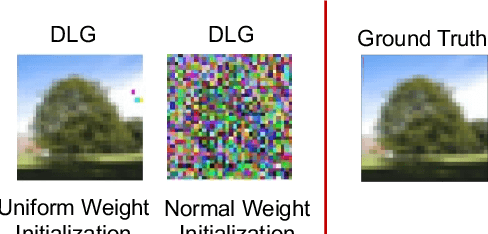

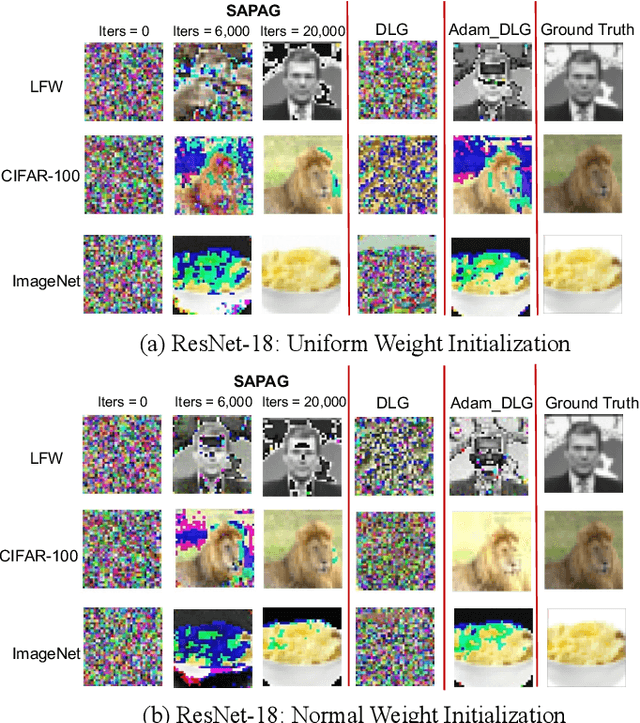
Abstract:Distributed learning such as federated learning or collaborative learning enables model training on decentralized data from users and only collects local gradients, where data is processed close to its sources for data privacy. The nature of not centralizing the training data addresses the privacy issue of privacy-sensitive data. Recent studies show that a third party can reconstruct the true training data in the distributed machine learning system through the publicly-shared gradients. However, existing reconstruction attack frameworks lack generalizability on different Deep Neural Network (DNN) architectures and different weight distribution initialization, and can only succeed in the early training phase. To address these limitations, in this paper, we propose a more general privacy attack from gradient, SAPAG, which uses a Gaussian kernel based of gradient difference as a distance measure. Our experiments demonstrate that SAPAG can construct the training data on different DNNs with different weight initializations and on DNNs in any training phases.
MCMIA: Model Compression Against Membership Inference Attack in Deep Neural Networks
Aug 28, 2020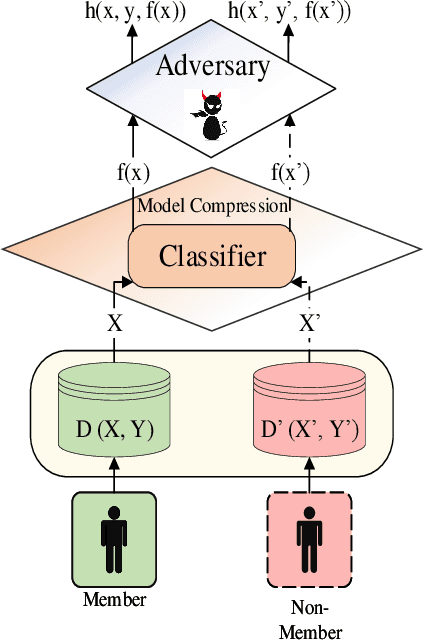
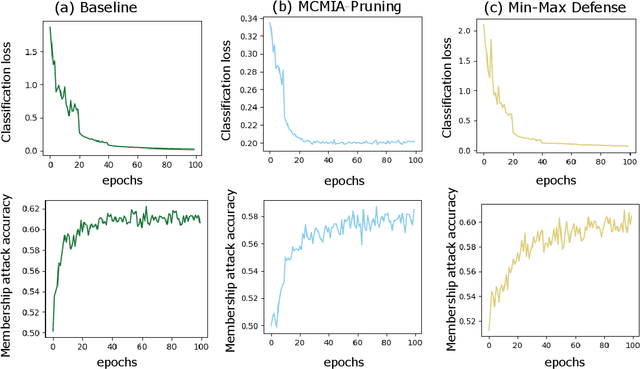
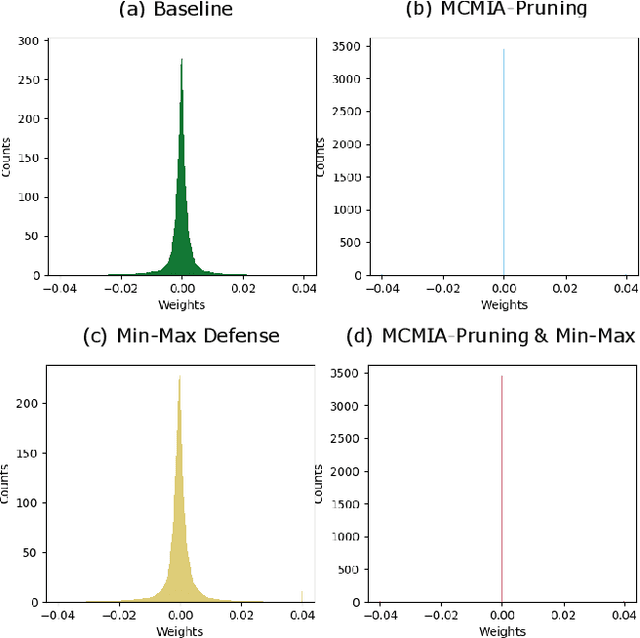
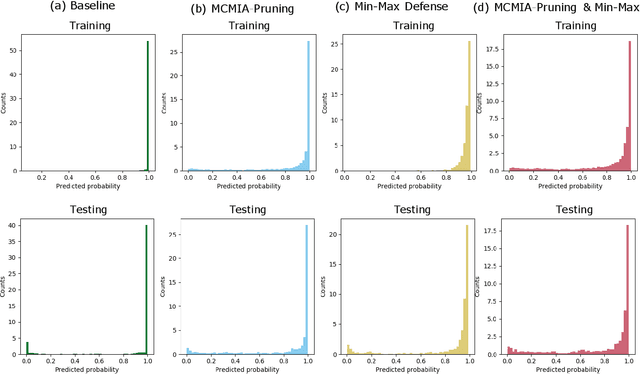
Abstract:Deep learning or deep neural networks (DNNs) have nowadays enabled high performance, including but not limited to fraud detection, recommendations, and different kinds of analytical transactions. However, the large model size, high computational cost, and vulnerability against membership inference attack (MIA) have impeded its popularity, especially on resource-constrained edge devices. As the first attempt to simultaneously address these challenges, we envision that DNN model compression technique will help deep learning models against MIA while reducing model storage and computational cost. We jointly formulate model compression and MIA as MCMIA, and provide an analytic method of solving the problem. We evaluate our method on LeNet-5, VGG16, MobileNetV2, ResNet18 on different datasets including MNIST, CIFAR-10, CIFAR-100, and ImageNet. Experimental results show that our MCMIA model can reduce the attack accuracy, therefore reduce the information leakage from MIA. Our proposed method significantly outperforms differential privacy (DP) on MIA. Compared with our MCMIA--Pruning, our MCMIA--Pruning \& Min-Max game can achieve the lowest attack accuracy, therefore maximally enhance DNN model privacy. Thanks to the hardware-friendly characteristic of model compression, our proposed MCMIA is especially useful in deploying DNNs on resource-constrained platforms in a privacy-preserving manner.
 Add to Chrome
Add to Chrome Add to Firefox
Add to Firefox Add to Edge
Add to Edge